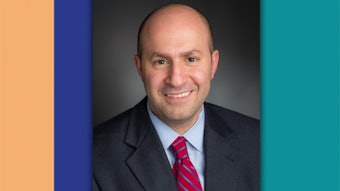Improving the value of health care
An examination of tying health care to outcomes versus cost. Can it work for urology?

Value-based health care changes the way medicine is delivered. Unlike the traditional fee-for-service approach in which providers are compensated based on the amount of health care services they deliver, value-based care rewards health care organizations on the quality of care they provide to help patients improve their health with evidence-based guidance and reduce the incidence and impact of chronic disease.
Saturday’s session, “PD25 Health Services Research: Value of Care: Cost and Outcomes Measures II,” will focus on the value of care, cost and outcomes with respect to several aspects of health services research, spanning all dimensions of urologic specialties.
“Value-based health care is incredibly important in medicine because it links how much money is spent on health care programs or services over a patient’s journey to the outcomes that matter most to patients,” said Angela Smith, MD, MS, FACS, one of the session’s moderators. Dr. Smith is the director of urologic oncology at the UNC Lineberger Comprehensive Cancer Center in Chapel Hill, North Carolina.
Along with Dr. Smith, the podium presentations will be co-moderated by leading experts in the field of health economics, including Yair Lotan, MD, professor of urology and chief of urologic oncology at University of Texas Southwestern in Dallas, and Dr. Celeste Alston, MD, assistant professor and chair of urology at the University of Panama. Dr. Lotan is an expert in health economics research, which evaluates the cost-effectiveness of surgery and cancer prevention. Dr. Alston is an international urology leader and the first president of the Urological Association of Central America and the Caribbean, a nonprofit association that promotes the development of urology in Central America and strengthens relations between the countries through continuing medical education.
In response to growing concerns over rising health care costs and variation in quality, improving value for patients is a fundamentally new strategy for how health care should be delivered, measured and remunerated. Value-based care typically features various types of payment models, including episode-of-care models, shared savings programs and capitation models. Which value-based payment models may serve as examples for urology? How does value-based care translate to new delivery models? How can the “value” in value-based care be measured? Each presenter will provide a brief presentation followed by a question-and-answer session with audience and moderator participation. “We look forward to an interesting and exciting discussion,” Dr. Smith said.
Visit AUA2021 Daily News Online for more articles.











